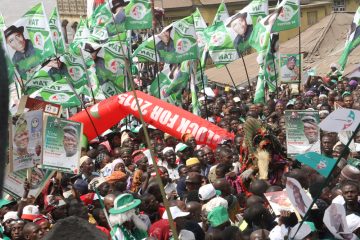
Will 2019 Witness a Protest Vote against Nigeria’s Ruling Party?
The 2019 presidential election will mark a defining moment in Nigeria’s hectic political history. Tensions are rising ahead of the elections in February when the polls will mark the first contest after an opposition leader defeated an incumbent president since the return to civilian rule in 1999. In the 2015 election, the All Progressives Congress (APC) defeated then-President Goodluck Jonathan’s People’s Democratic Party (PDP). Today, APC faces the prospect of electoral defeat just four years after it came into power. Neither President Muhammadu Buhari, nor any of the likely main opposition candidates, has a clear support base. In the lead-up to Nigerians heading to the polls in early 2019, the deteriorating security situation of Africa’s largest economy is particularly worrying. …
Federalism in Nigeria: Contextualising Boko Haram and the Fuel Subsidy
When Boko Haram killed nearly 70 civilians over the Christmas holidays, many observers in the Western media were quick to chalk it up to wanton Islamic extremism. The attacks, it was concluded, reflected global jihadist activity. Emphasis was placed on the group’s links to al Qaeda. This narrative is shortsighted. For one, it ignores Christian retaliation just days later, including the bombing of a madrasa that injured seven. More broadly, it decontextualizes the violence. Nearly 500 Nigerians were killed in the northeast in 2011 due to sectarian conflict. Suicide attacks, car bombings, and assassinations-by-machete have been documented throughout the country, Africa’s most populous and the linchpin of Western engagement with the continent. Such killings are not new to Nigeria: religious strife has been a constant for decades, …









